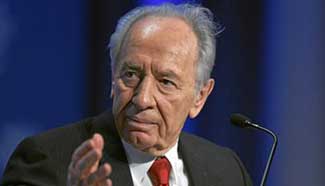BEIJING, Sept. 28 (Xinhua) -- The Group of 20 (G20) summit in Hangzhou is important for global economic coordination by focusing on the right topics, a European economic think tank chief has said.
"The Hangzhou summit was an important summit. It put rightly emphasis on both sides of the economy, supply side and demand side," Guntram Wolff, director of Bruegel, recently told Xinhua while commenting on the G20 summit held in the eastern Chinese city of Hangzhou earlier this month.
The world economy is facing new challenges eight years after the 2008 global financial crisis, with monetary policy everywhere basically at its limit, observed the head of the Brussels-based European and Global Economic Institute.
"We need significant structural reforms on the one hand, but on the other hand, we also need supportive macroeconomic policies that support demand," Wolff said. "That combination makes sense."
Among the key challenges, Wolff said inequality has become noticeably important for the whole world although there are different domestic troubles in every country among the G20 members.
This not only worries the developing and lower-income countries, but also troubles the advanced economies, including European countries and the United States.
Wages are "falling in many countries around the world, meaning that the percentage of national income that goes to ordinary working people has been falling," Wolff said in the Xinhua interview when attending a meeting here on the G20 and global economic coordination.
He thought that the popular backlash seen currently in some parts of the Western world is very much related to the feeling that globalization has failed to benefit all but the top few percent of people, especially in the Western world.
"In the developed countries, you do not have growth any more, and the productivity growth is very low. If you're of middle class in the United States, for example, you haven't seen income increase for 30 years, and then there are increased tensions," Wolff said.
In this regard, the G20 summit in Hangzhou set the right tone to address the inequality issue, including global coordination on corporate taxation around the world, he said.
Moreover, the summit emphasized inclusive growth, which is a "good concept," the economist said.
Wolff believed that inclusive growth means not only fairer distribution of social wealth, but also equal access to opportunity, education and new jobs, among others.
"The concept of inclusive growth is much broader, which covers many dimensions," he said.
Regarding global economic governance, "G20 is totally relevant and important," Wolff said, adding that "as a forum, G20 represents the changing world economy and China has been playing an increasingly important role in this process."
Wolff commended China for tackling the inequality challenge, saying "it has really lifted hundreds of millions of people out of poverty, which is a huge achievement."
On China's economy, Wolff said that "China's growth rate is still quite high."
However, he believed that the phase of growth largely dependent on increasing investment has to end in China.
"Ultimately, the growth of China would come from progress in technology and total productivity, labor productivity, better education system," he said, while suggesting more balanced growth and a stronger service sector.
In his opinion, "there is a big transformation that China has to face and it can be managed."











